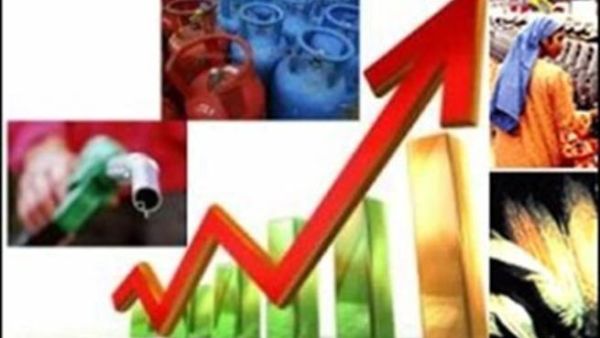Lebanon’s inflation rate fell slightly to an annualized rate of 2.26 percent in July from 2.82 percent in June as clothing and footwear costs declined, according to the latest figures from the Central Administration of Statistics. The report shows July prices of food and drink remained the same, while the price of clothes and shoes registered a decline of 2.9 percent compared to June. Rent, water, electricity and fuel prices increased by 0.2 percent and transportation costs dropped by 0.3 percent.
According to the same figures, the Consumer Price Index was up 5.76 percent year on year, so the average basket of goods rose in price by 5.76 percent over the past 12 months. However, economists interviewed by The Daily Star say the real inflation rate is much higher and that figures released by the government don’t reflect real prices on the streets. “We could say this rate is an estimation because each year [the government] says inflation increases by 5 to 6 percent but when you speak to people on the street, you can tell that inflation is more than 10 percent,” Ghazi Wazni, an economics analyst, told The Daily Star.
Mohammad Darwish, secretary general of Consumer Lebanon, also disputed the statistics proved by the office of the prime minister. “The government always tries to show that consumer prices are rising modestly in an attempt to sooth public anger and to discourage labor unions from demanding higher wages and more benefits,” Darwish told the paper. He stressed that contrary to the claims of the government, the prices of basic commodities in the first three months of 2011 went up by more than 18 percent, adding that prices continued to climb unchecked during Ramadan despite the pledges of the Economy Ministry to monitor the prices. Darwish supported the General Labor Confederation Demand to raise the minimum wage from LL500,000 ($333) to LL1.2 million. But this proposal by the GLC was rejected by most of the companies and firms although they did not totally reject the idea of a new salary adjustment.
Finance Minister Mohammad Safadi hinted in an interview with The Daily Star last month that the Cabinet may consider raising the minimum wages and improving the social and medical benefits for the citizens.
According to the prime minister’s office, inflation during the first seven months was 1.31 percent, compared to 0.18 percent in the first seven months of 2010, indicating an acceleration of price increases so far this year.
Wazni said that the impact of global prices affects Lebanon only when prices go up, but when prices decrease, the impact is not on the same level and it probably takes three to four months to adjust. “Have you ever heard prices falling down in Lebanon when the prices in the international markets drop? The answer is definitely no,” Darwish said.
Lebanon’s Central Bank Governor Riad Salameh said earlier this year that he expected 2011 inflation to reach up to 7 percent and that he would seek to contain levels by managing liquidity rather than raising interest rates. “If we calculate the inflation since 1996, it would be more than 100 percent,” Wazni said, adding that salaries are not indexed to inflation in Lebanon.
Analysts believe that the only solution to inflation which results in the decline of people’s purchasing power is an increase in the minimum wage so that the citizen could “at least make ends meet.”








